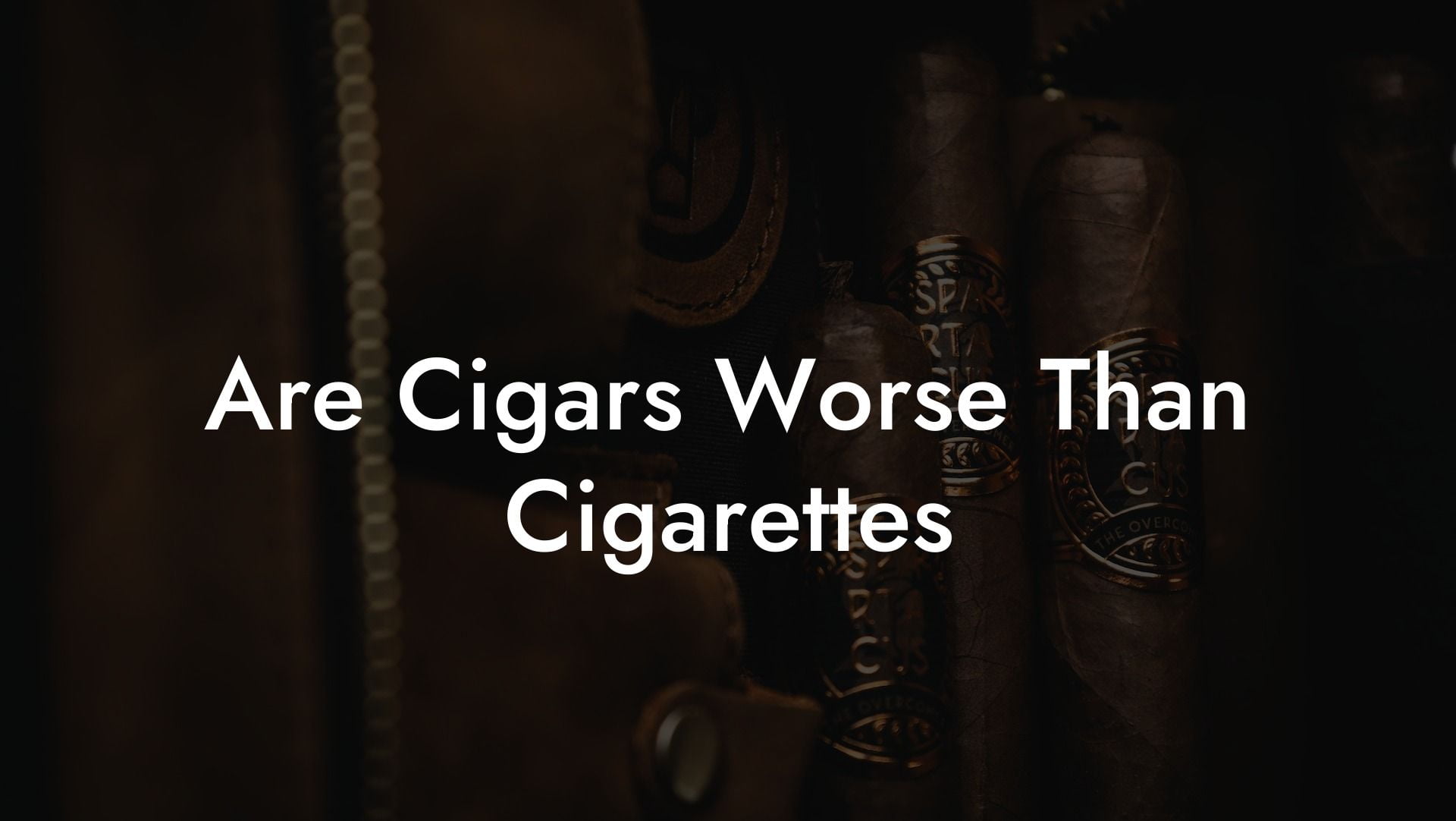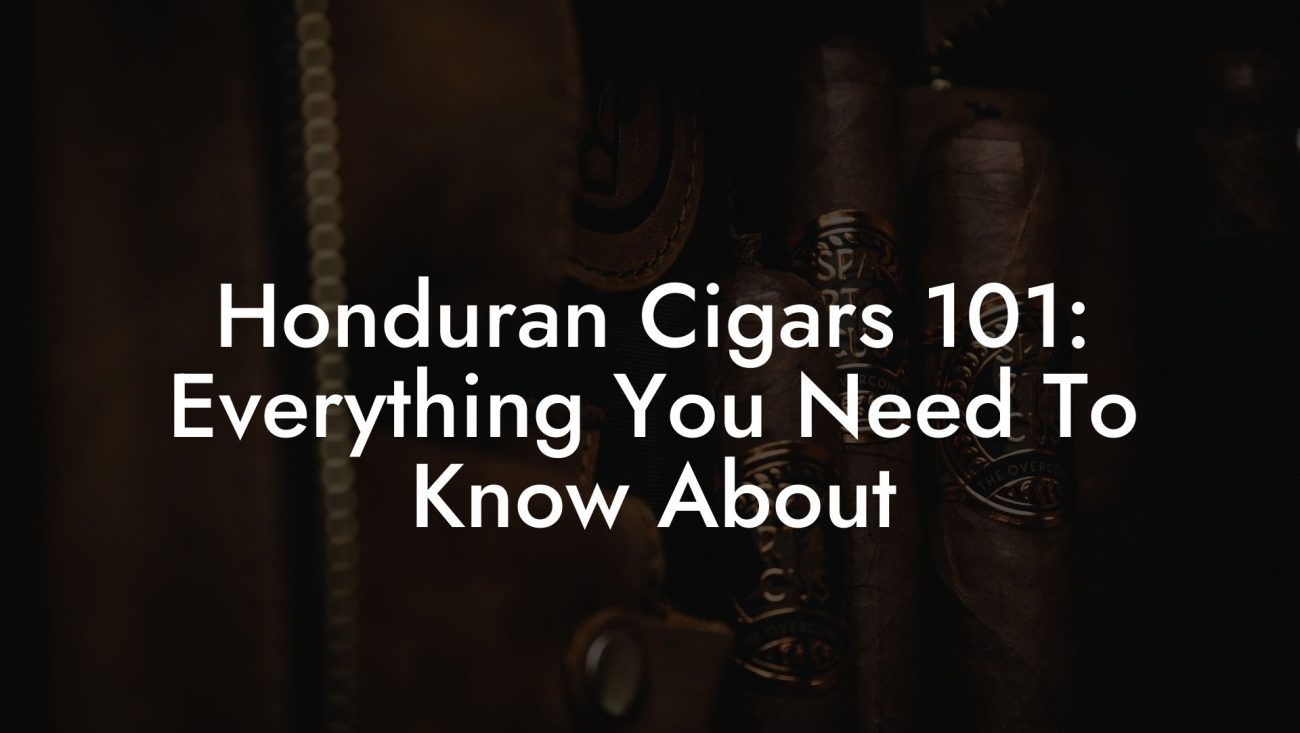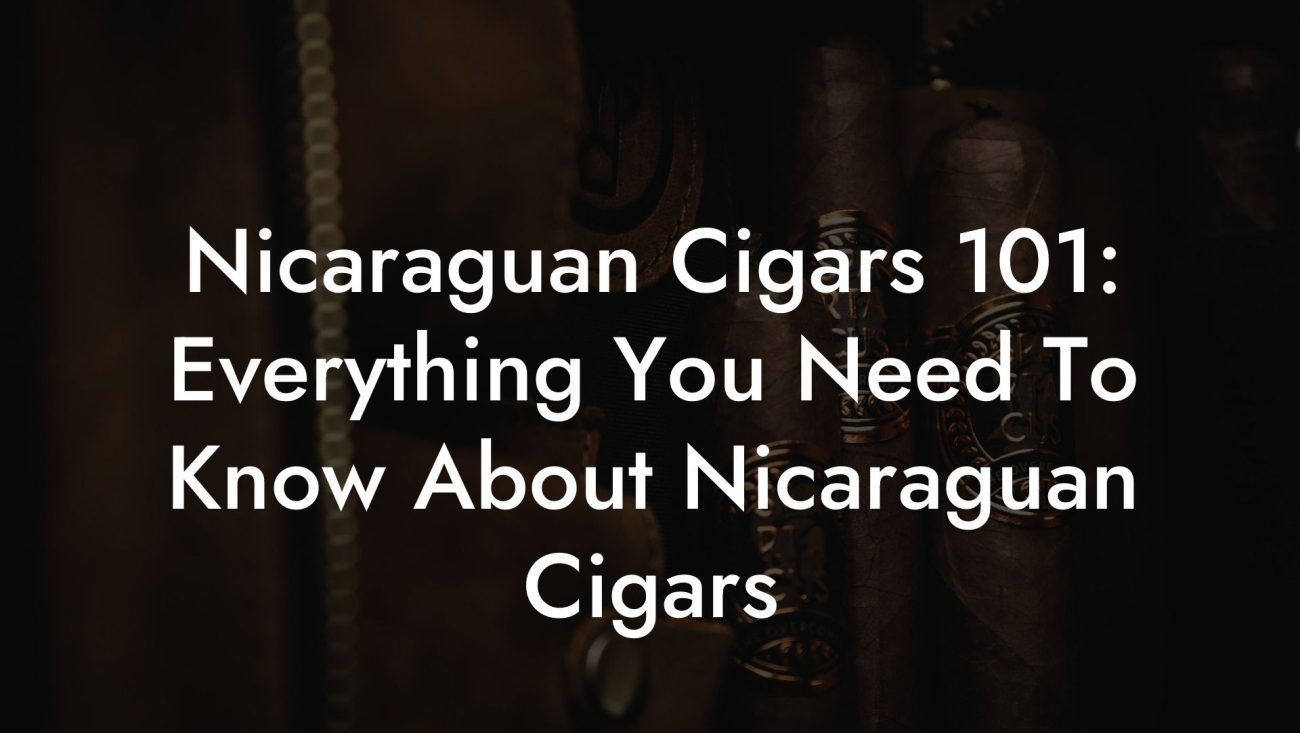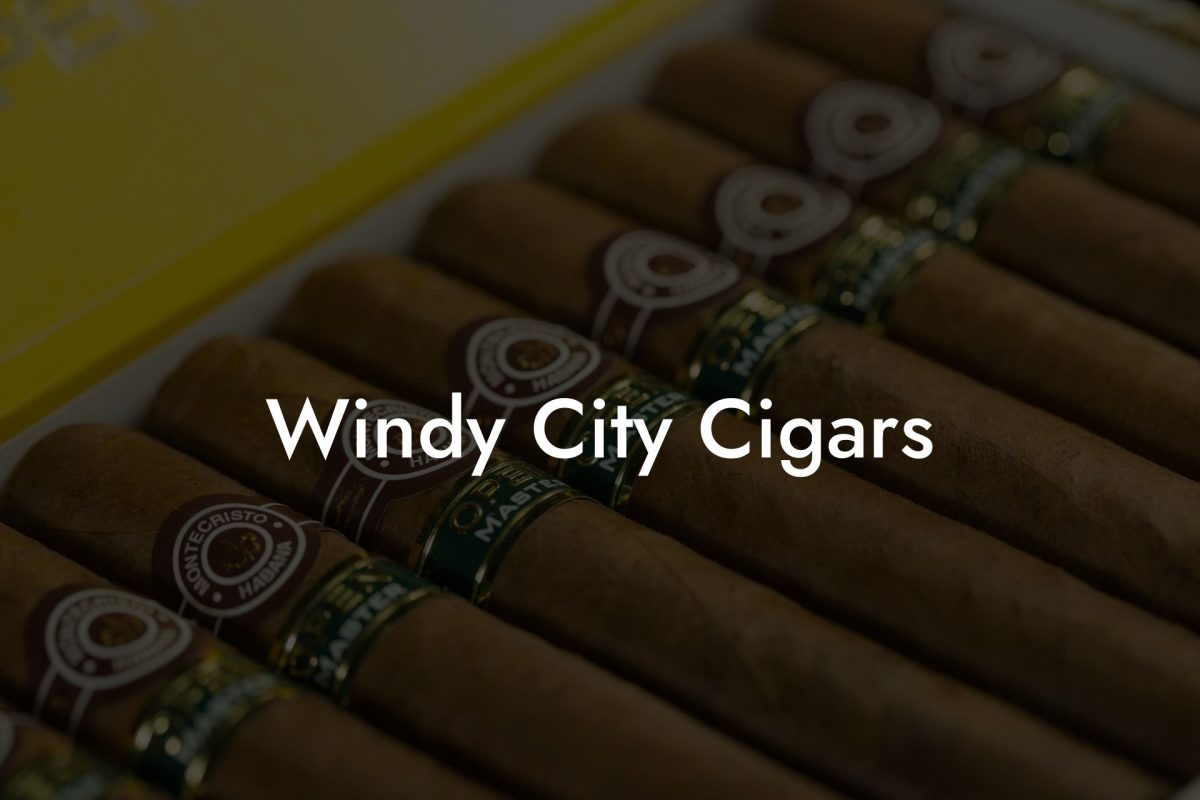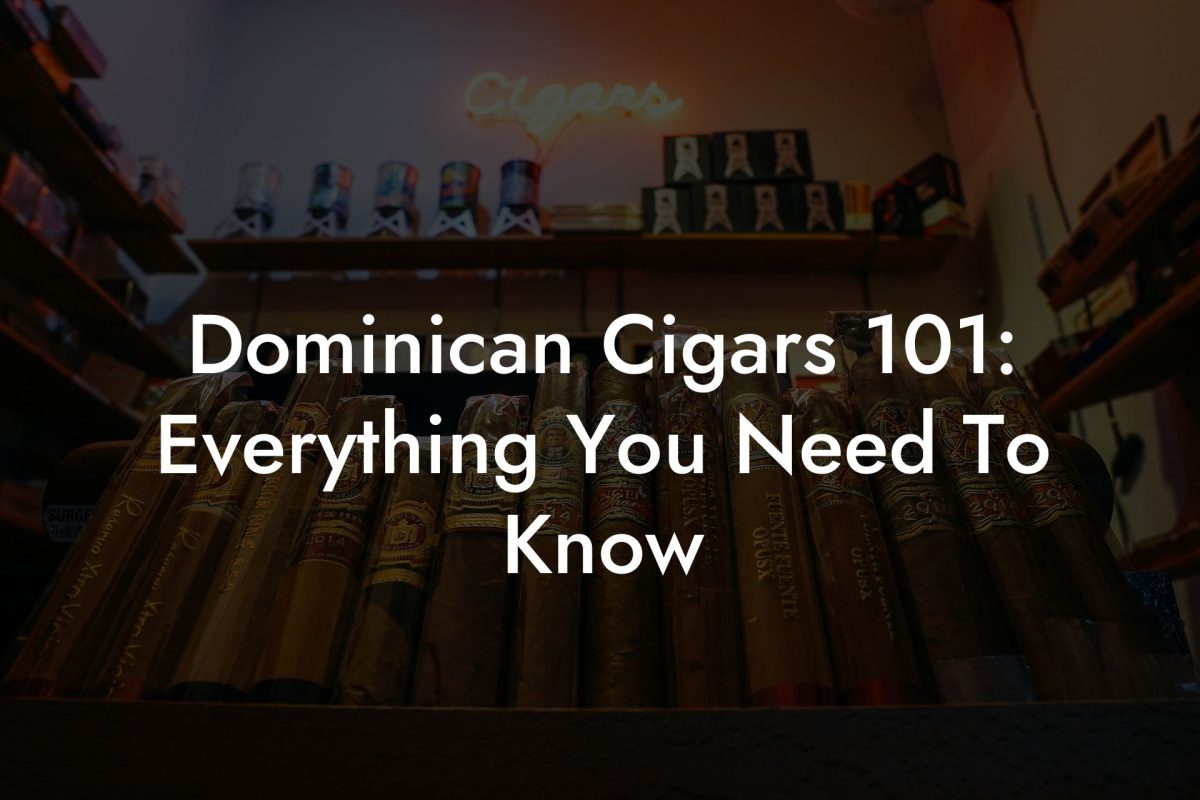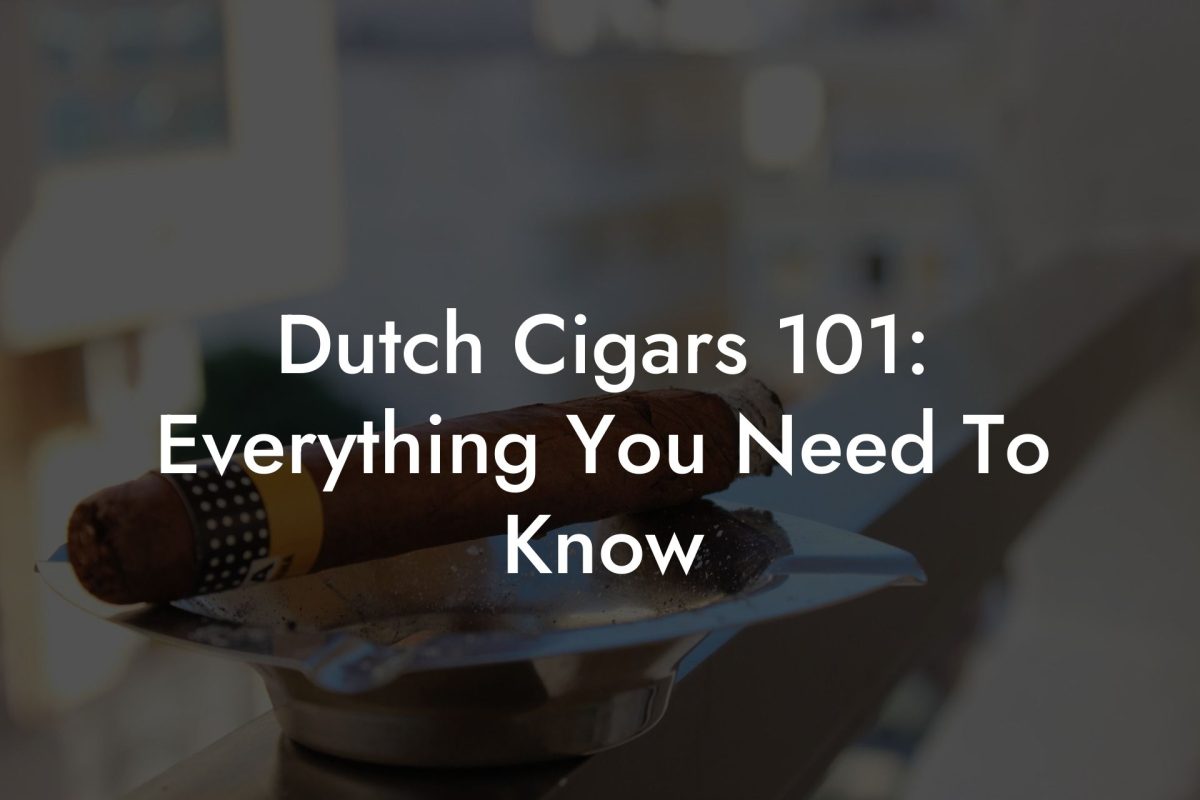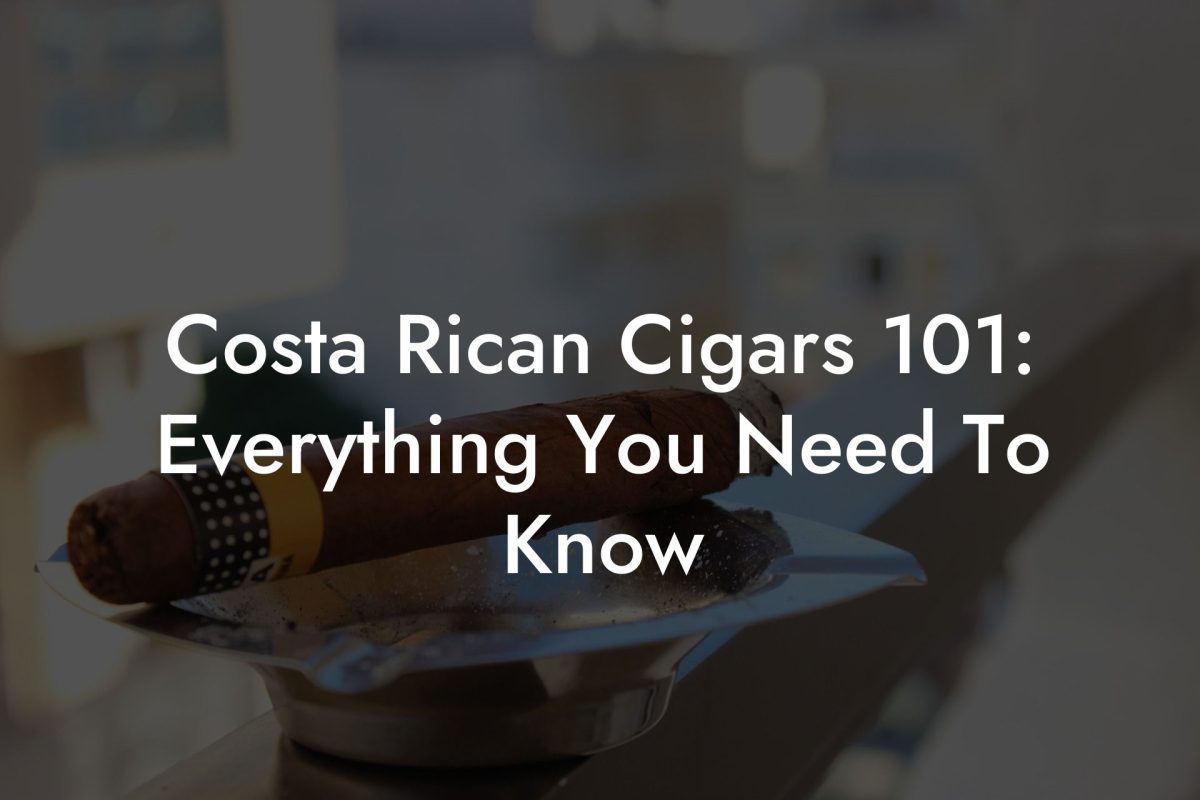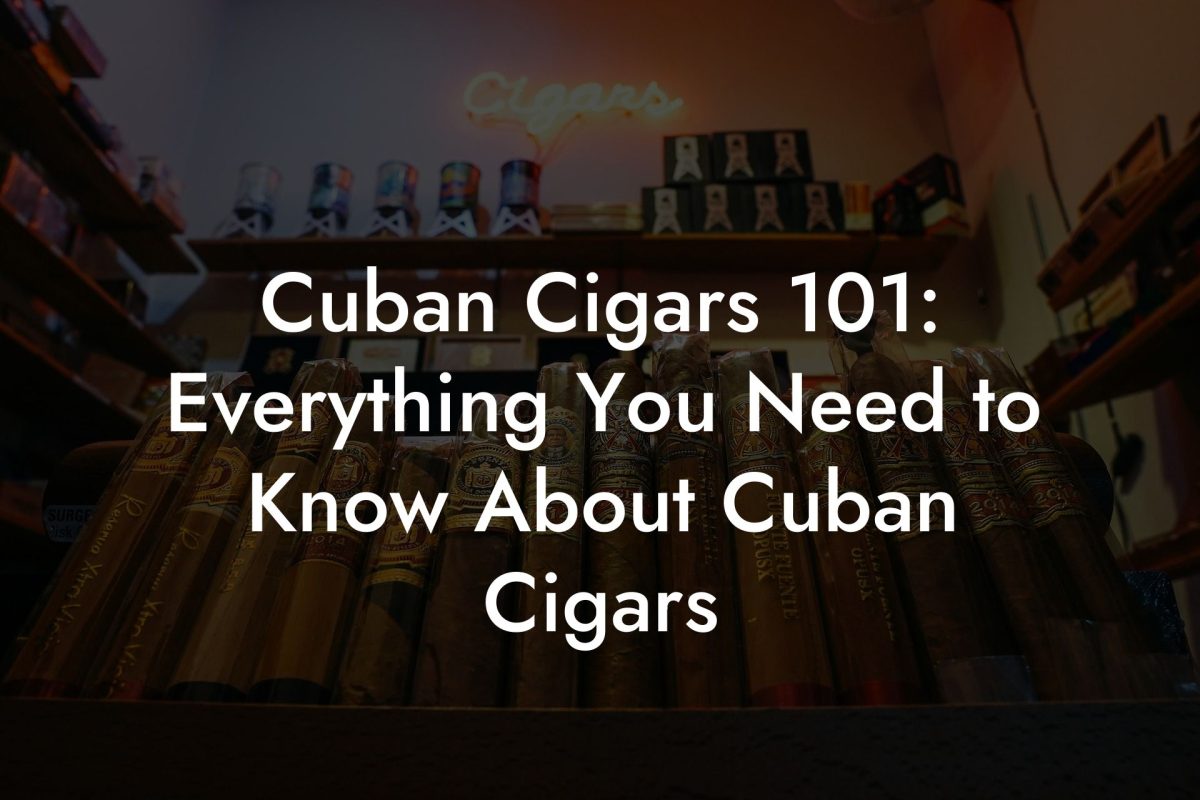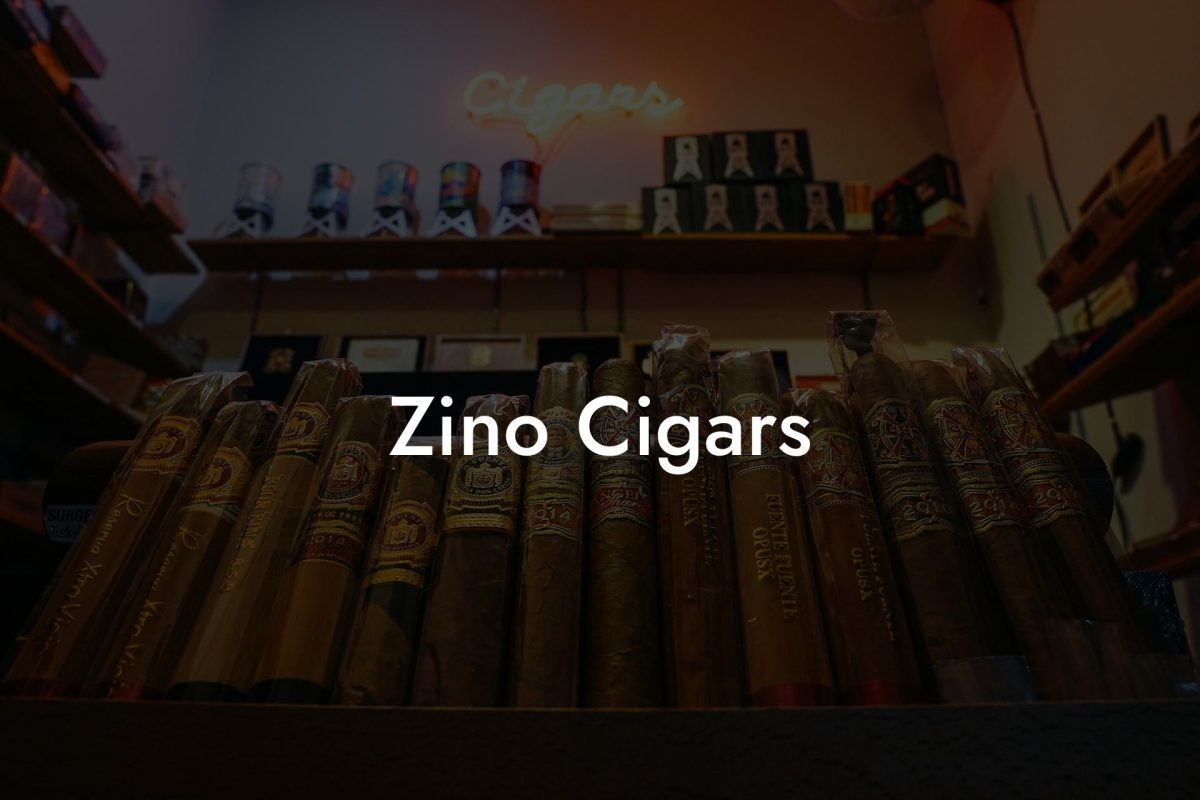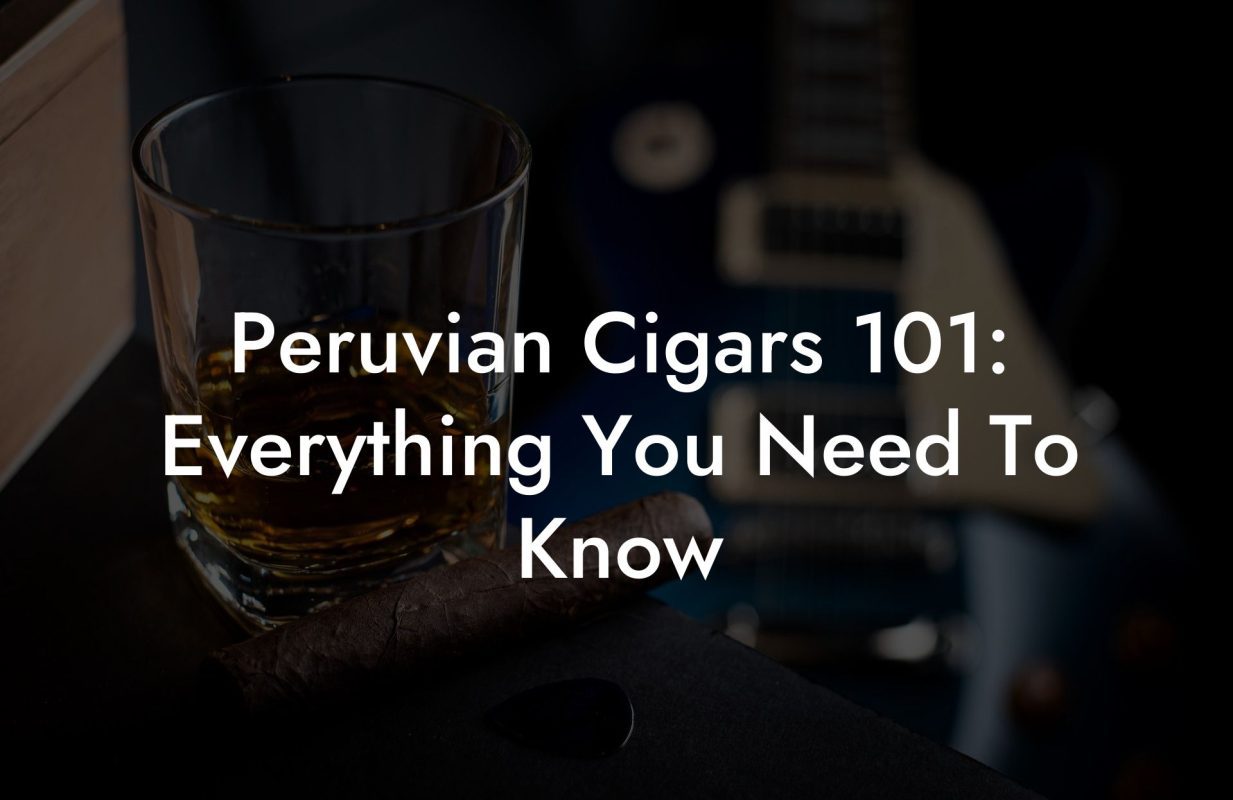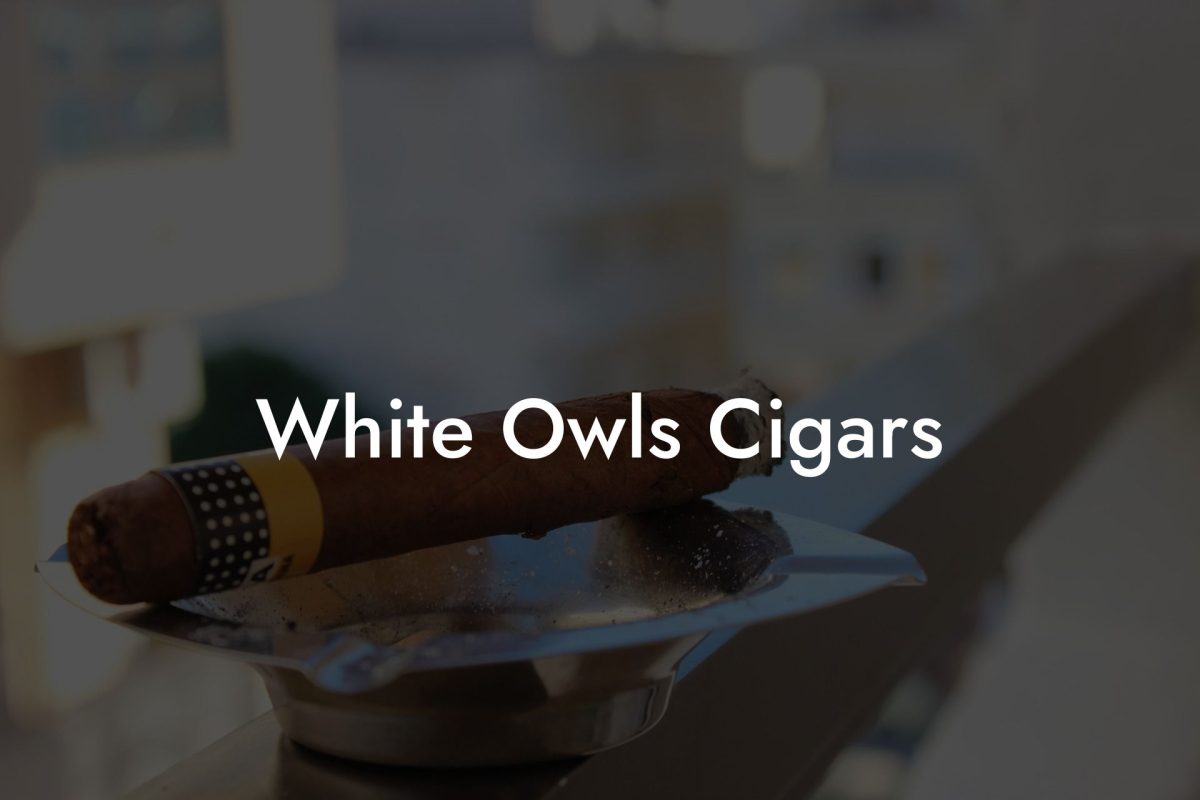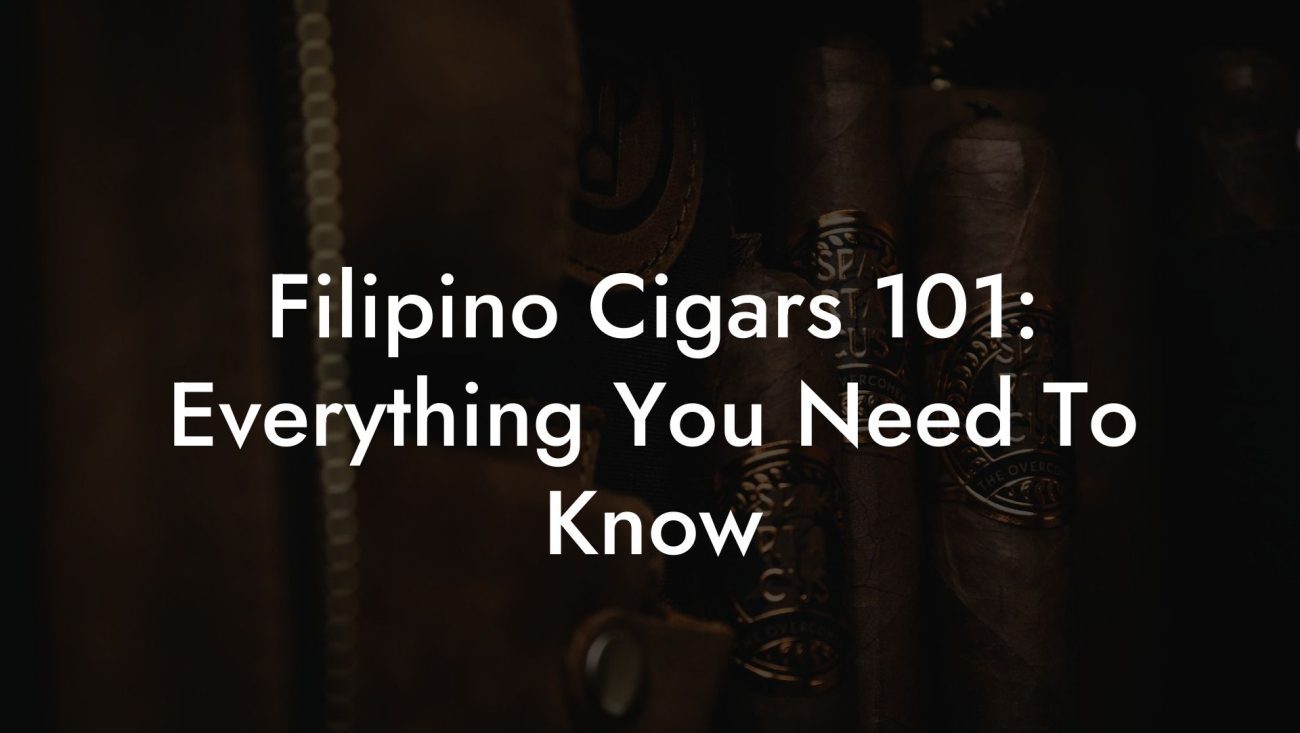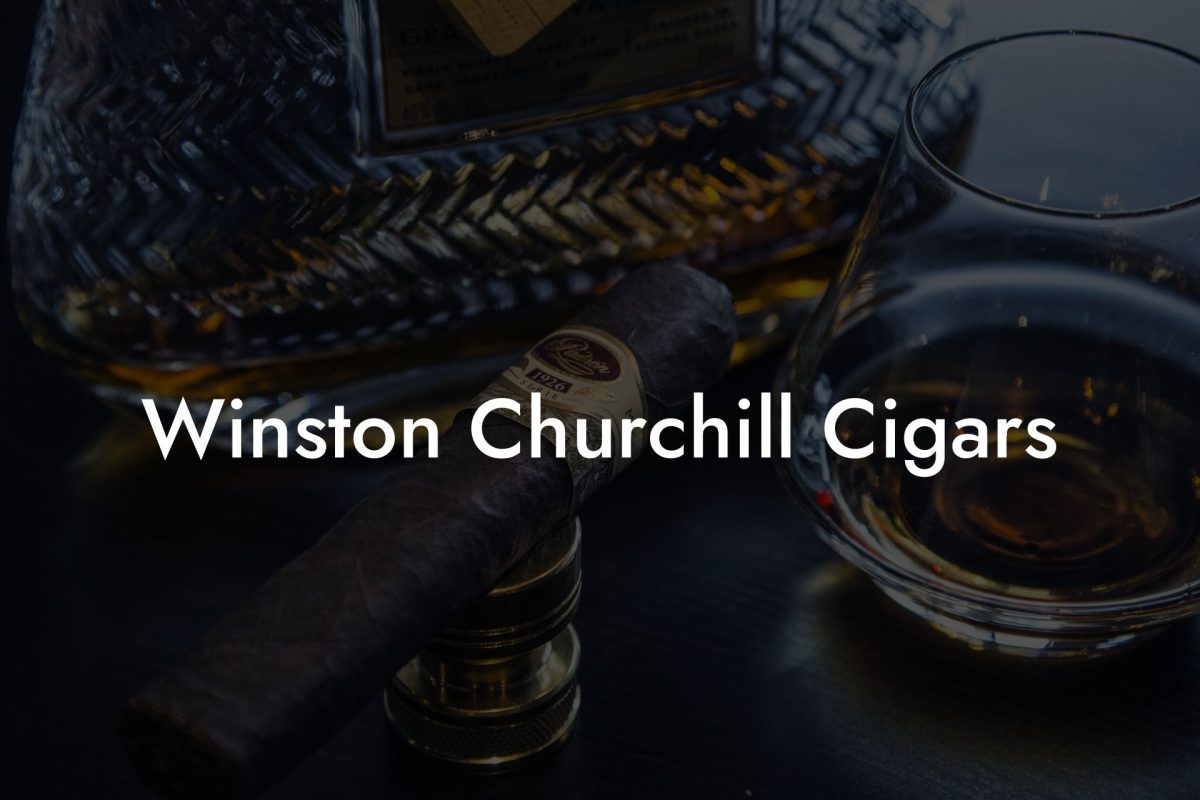There’s something undeniably captivating about the rich aroma of burning tobacco, the gentle flicker of a flame, and the rituals that surround both cigars and cigarettes. But have you ever stopped to wonder, “Are cigars worse than cigarettes?” While both forms of tobacco consumption share a common heritage, they differ in style, culture, and impact on your health. This deep dive explores every twist and turn of the debate, dissecting the risks and rewards of both habits, sprinkled with humor, real talk, and a dash of Gen-Z panache.
Are Cigars Worse Than Cigarettes Table of Contents
The Rich History and Cultural Appeal of Cigars
Cigarettes: The Modern-Day Habit and Its Ubiquity
Cigars vs. Cigarettes: A Side-by-Side Comparison
Health Implications: What the Science Says
The Social Landscape: Lifestyle, Perception, and Community
Economic and Regulatory Perspectives
Debunking Myths: Separating Fact from Fiction
The Role of Marketing and Media in Shaping Perceptions
Comparative Analysis: Which is Worse, Cigars or Cigarettes?
Modern Perspectives: A Generation in Transition
Practical Tips for Tobacco Users: Reducing Harm and Enhancing Awareness
Resources and Community Support: Your Next Steps
Expert Opinions: Weighing In on the Debate
Real Stories: Personal Journeys in Tobacco Use
Embracing a Mindful Approach to Tobacco Consumption
Your Journey to a Consciously Informed Lifestyle
Integrative and Holistic Approaches to Tobacco Awareness: FAQs
The Rich History and Cultural Appeal of Cigars
Cigars have long been a symbol of celebration, power, and sophistication. Their history is entwined with legends, secret societies, and even a touch of rebellion. Remember the golden era of Hollywood when stars lit up a cigar as they contemplated a life of glitz and glamour? Today, cigars have transformed into a lifestyle accessory often associated with moments of relaxation, high-class gatherings, and even entrepreneurial triumph.
When you puff on a cigar, you’re not just indulging in tobacco, you’re partaking in a centuries-old tradition. Unlike cigarettes, which are often consumed mindlessly, cigars demand attention. The process is meticulous: choosing the right brand, cutting the tip with precision, and savoring each draw slowly to allow the flavors to unfold. This emphasis on ritual contrasts starkly with the quick, often compulsive nature of cigarette smoking.
In modern times, cigars have also become a status symbol among millennials and Gen-Zers who seek experiences and authenticity over mere consumption. Despite their historical cachet, cigars are not without controversy, especially as the world becomes ever more health-conscious.
Cigarettes: The Modern-Day Habit and Its Ubiquity
Cigarettes burst onto the scene in the early 20th century and quickly became a ubiquitous part of everyday life. With their convenience and marketing prowess, cigarettes transformed the way people consumed tobacco. Unlike the thoughtful enjoyment of a cigar, cigarette smoking is characterized by rapid, often habitual, consumption, a stark contrast to the slow-burning, reflective ritual of cigars.
Cigarettes are engineered for efficiency: quicker burns, precise amounts of nicotine, and easy portability pack a modern punch that caters to on-the-go lifestyles. Their affordability and widespread availability have made them a frequent choice among millions. However, this ease of access has come at a significant cost. Regulatory bodies worldwide have intensively scrutinized cigarettes for their role in the public health crisis, particularly as research has revealed their extensive impact on lung health, heart disease, and cancer.
Even with the dramatic rise of e-cigarettes and vaping culture that has captivated younger audiences, traditional cigarettes still leave an indelible mark on public health, fueling debates over regulatory policies and societal norms.
Cigars vs. Cigarettes: A Side-by-Side Comparison
To answer the burning question, pun intended, “Are cigars worse than cigarettes?” we need a close-up look at the differences and nuances between these two tobacco titans. Let's break it down:
- Size and Composition: Cigars are generally larger than cigarettes, consisting of a whole tobacco leaf wrapper and a carefully blended filler. Cigarettes, in contrast, use processed tobacco wrapped in paper, often with additives.
- Usage Patterns: Cigars are typically smoked slowly and infrequently, often reserved for special occasions. Cigarettes are often smoked repeatedly throughout the day, leading to a much higher total exposure to tobacco smoke.
- Nicotine Content: While both contain nicotine, cigars usually harbor more nicotine per unit. However, because cigars are not typically inhaled deeply as cigarettes are, the nicotine absorption differs.
- Health Risks: Both carry serious health risks, but the nature and degree vary. Cigarettes are linked to a higher risk of lung cancer and cardiovascular diseases due to frequent inhalation. Cigars, though associated with cancers of the mouth, throat, and esophagus, sometimes offer lower lung exposure, yet not without their own hazards.
- Cultural and Social Impact: Cigars have a certain old-school elegance and are often associated with celebration and leisure. In contrast, cigarettes carry the stigma of addiction and public health concerns that have only intensified over the decades.
This comparison sets the stage for a more nuanced discussion. It turns out that the debate between cigars and cigarettes isn’t about a simple “better or worse” dichotomy, but about exposure, frequency, and lifestyle choices.
Health Implications: What the Science Says
From lung cancer to heart disease, the health risks linked with tobacco are an ever-present reminder of the dangers of smoking. But do cigars pose the same risk level as cigarettes? The scientific community is divided, and here’s why.
Navigating the Data
Research indicates that cigarette smoking is responsible for a significant share of preventable deaths worldwide, from emphysema to coronary artery disease, led by the daily inhalation of deeply inhaled smoke. Cigarette smokers typically inhale smoke into their lungs and do so repeatedly throughout the day, which dramatically increases the risks.
Cigars, on the other hand, are usually enjoyed differently. Many cigar aficionados do not inhale the smoke deeply into their lungs, opting instead to savor the flavor. However, this does not render cigars harmless by any means. The outer lining of the mouth, throat, and esophagus is still at risk due to the toxic chemicals present in the smoke.
The Nicotine Factor
One of the more controversial aspects of the health debate between cigars and cigarettes is nicotine content. Nicotine is the addictive component in tobacco, and while cigars contain a significant amount per unit, the rate of absorption can differ due to differences in inhalation practices. This means one cigar might offer a hefty nicotine punch without the respiratory impact of deep inhalation, unlike a cigarette that is designed precisely for that purpose.
Despite this, both forms contribute to addiction and can make quitting a formidable challenge. Regardless of usage style, nicotine’s role in elevating heart rate and blood pressure remains a constant point of concern.
Cancer and Respiratory Risks
The carcinogenic compounds in tobacco smoke have been well-documented. With cigarettes, the near-constant exposure of lung tissues to these compounds significantly increases the risk of lung cancer, chronic bronchitis, and emphysema. Although cigar smoke is typically not inhaled as deeply, studies show that habitual cigar smoking is linked to cancers of the oral cavity, larynx, and esophagus.
Moreover, secondhand smoke is another area of concern. While both cigarettes and cigars emit harmful toxins into the environment, the larger volume of smoke produced by a single cigar can contribute just as significantly to indoor air pollution, thereby affecting non-smokers in close proximity.
In other words, while the mechanisms differ slightly between cigars and cigarettes, both carry substantial risks that have been verified by decades of rigorous medical research.
The Social Landscape: Lifestyle, Perception, and Community
In the age of social media, lifestyle branding has taken center stage. Cigars, with their rich traditions and elaborate rituals, have been co-opted by influencers, celebrities, and lifestyle brands looking to evoke an aura of sophistication and luxury. On the flip side, cigarettes are often portrayed as a mark of rebellion or stress relief in gritty urban narratives, despite their declining social acceptance.
This divergence in cultural symbolism feeds into personal choices. For many young adults, cigar smoking might be seen as an occasional indulgence, a celebratory accessory reserved for special moments. It portrays a sense of exclusivity and deliberateness. Cigarette smoking, however, has increasingly become associated with daily dependency and is often subject to stricter regulations and higher social stigmas.
Media portrayals, celebrity endorsements, and even counterculture movements have all contributed to the shape of these perceptions. And while the reality of health risks cannot be ignored on either side, the social implications and psychological impact of the habit differ markedly.
Whether you're drawn to the refined allure of cigar smoking or the controversial edge of cigarette use, the social dynamics around these habits are as complex as their health implications.
Economic and Regulatory Perspectives
Beyond personal health, the economics of tobacco and the ever-tightening grip of regulations have a profound influence on both the cigar and cigarette industries. Governments across the globe impose heavy taxes and strict marketing guidelines in an effort to curtail tobacco use, particularly among young people.
Cigarette manufacturers have been subject to relentless public scrutiny for decades, leading to massive legal settlements, pictorial health warnings on packaging, and restrictions on advertising. These measures, while essential for public health, also serve to reinforce the notion that cigarettes are a public hazard.
The cigar industry, meanwhile, often occupies a different niche. While it is not immune to regulation, the perception of cigars as a luxury item affords it a bit more leeway in terms of marketing strategies and pricing structures. That said, the tobacco in cigars is still subject to health regulations, and many governments are now grappling with stricter rules in response to evolving consumption patterns.
For the consumer, understanding these economic and regulatory nuances can provide insight into the cost, both financial and health-related, of tobacco consumption. Whether budgets are influencing choices or public policies are shifting, the dynamics of regulation continue to shape the landscape of tobacco use.
Debunking Myths: Separating Fact from Fiction
With great popularity comes great myth-making. The internet is flooded with opinions, anecdotes, and so-called “hacks” for smoking, leading to the perpetual question: Are cigars really a “safer” alternative to cigarettes? Let’s bust some of the most persistent myths:
Myth 1: “Cigars Are Safer Because You Don’t Inhale”
While it’s true that cigar smokers generally do not inhale as deeply as cigarette smokers, the risks are not eliminated. The mere act of holding the smoke in your mouth exposes you to harmful carcinogens, which can increase the risk of cancers of the oral cavity, throat, and esophagus.
Myth 2: “Cigars Are Only for Special Occasions, So They’re Not as Dangerous”
The infrequency of cigar smoking may reduce some risks, but if done regularly, the cumulative exposure to harmful substances can be significant. Occasional indulgence might mitigate risk somewhat, but it doesn’t create a safety net.
Myth 3: “Cigarettes Are the Only Tobacco Product That Causes Addiction”
Nicotine is inherently addictive, regardless of the form in which it is consumed. Smokers of both cigars and cigarettes can develop nicotine dependence, albeit through different patterns of use.
Myth 4: “The Ritual of Cigar Smoking Makes It a More Sophisticated, Less Risky Experience”
Sophistication does not equate to reduced health risks. While the leisurely enjoyment of a cigar might appear refined, the chemical composition of tobacco remains just as detrimental.
Debunking these myths highlights a crucial takeaway: neither cigars nor cigarettes can be considered “safe” forms of tobacco consumption. The differences lie primarily in usage patterns and cultural context, not in the elimination of health risks.
The Role of Marketing and Media in Shaping Perceptions
Marketing campaigns have long played on the allure of both cigars and cigarettes to create a particular image or lifestyle. Cigarette ads once promised glamour, adventure, and even health benefits, while cigar commercials evoked images of rugged independence or boardroom success. Today, with stricter regulations in place, marketing has shifted to more subtle references in movies, music videos, and social media selfies.
Social media platforms have become battlegrounds for tobacco imagery, vintage photo filters, influencer endorsements, and even memes contribute to the mystique. For instance, a carefully curated Instagram post featuring a hand-rolled cigar in an upscale setting can project an image of sophistication and success. Conversely, edgy underground content relating to cigarette smoking can evoke a rebellious, anti-establishment sentiment.
This evolution in marketing not only affects how consumers view tobacco but also how they approach it. It reinforces the idea that tobacco consumption, whether it’s the occasional cigar or a daily cigarette, is a projection of personal identity and lifestyle.
As consumers become more discerning about authenticity and values, the branding around tobacco products continues to shift. Awareness around both health implications and lifestyle associations is on the rise, challenging traditional marketing strategies.
Comparative Analysis: Which is Worse, Cigars or Cigarettes?
So, are cigars worse than cigarettes? The answer isn’t as straightforward as a simple yes or no. The health implications, frequency of use, and even social context all contribute to a layered picture:
- Frequency and Exposure: Regular cigarette smoking often results in multiple daily exposures, compounding health risks over time, whereas cigar smoking tends to be less frequent. However, even sporadic use isn’t risk-free.
- Method of Consumption: Inhalation patterns differ significantly, with cigarette smokers drawing smoke deep into their lungs, thereby incurring higher risks of lung-related illnesses. Cigar smokers, who generally savor the flavor and hold the smoke in the mouth, put themselves at greater risk of oral cancers.
- Nicotine and Addiction: Both products deliver nicotine, but the mode of delivery and absorption differ. This influences how quickly dependence develops and how severe withdrawal might be when quitting.
- Secondary Risks: Beyond personal health, consider the exposure of those around you. Secondhand smoke from both products can be equally harmful, affecting friends, family, and colleagues.
The key takeaway is that there is no “safe” tobacco product. Both cigars and cigarettes come with inherent risks that require careful consideration. What ultimately matters is understanding the context in which they are used and making informed decisions about your health and lifestyle.
For those who already smoke and are considering a switch, or for those who enjoy an occasional cigar, being aware of these factors can empower you to reduce harm. Whether it’s by cutting down on frequency, seeking cessation assistance, or simply being mindful of the environment in which you smoke, informed choices matter.
Modern Perspectives: A Generation in Transition
Today’s generation, especially millennials and Gen-Z, is characterized by a desire for authenticity, health consciousness, and mindful living. Tobacco use, with its historical baggage and ongoing controversies, often finds itself at odds with these values. This has led to interesting shifts in consumption patterns and even attitudes toward traditional tobacco products.
Many young adults are increasingly turning to alternatives like vaping or nicotine pouches, while others cherish the occasional, nostalgic pleasure of a cigar in a social setting. The modern scenario is complex; it combines a respect for tradition with a critical evaluation of risk, all set against a backdrop of accessible information and global health awareness.
In this changing landscape, the conversation about whether cigars are worse than cigarettes isn’t just about health, it’s about lifestyle choices, cultural identity, and the way modern society negotiates risk and pleasure. The ongoing debates in boardrooms, online forums, and social media groups reflect a broader societal shift towards embracing nuance over black-and-white judgments.
Practical Tips for Tobacco Users: Reducing Harm and Enhancing Awareness
Whether you’re a seasoned cigar aficionado or an occasional cigarette smoker, taking steps to reduce harm is crucial. Here are some practical tips for the tobacco user who wants to keep it real and stay as healthy as possible in a world full of choices:
- Know Your Limits: Set boundaries for how often and how long you indulge. Moderation can help reduce exposure to the myriad toxins in tobacco smoke.
- Stay Informed: Follow the latest research on tobacco and nicotine. The landscape is continuously evolving, and being informed can guide your choices.
- Opt for Safer Environments: Smoke in well-ventilated areas to minimize secondhand smoke exposure for those around you.
- Mind Your Health: Engage in regular health check-ups. Be proactive about monitoring your respiratory, cardiovascular, and oral health.
- Consider Professional Help: If you're thinking about quitting or reducing consumption, consult healthcare professionals for support such as counseling, nicotine replacement therapies, or cessation programs.
Even if tobacco isn’t totally off the menu for you, these practical tips can help balance enjoyment with a commitment to long-term health.
Resources and Community Support: Your Next Steps
Navigating the complexities of tobacco use doesn’t have to be a solo journey. Whether you’re looking to quit, reduce consumption, or simply find a community that understands the challenges and pleasures of tobacco rituals, there are resources available to help you make informed choices. Check out reputable organizations like the American Lung Association, Truth Initiative, and local cessation programs designed to guide you on your path to healthier habits.
Social media groups and online forums dedicated to tobacco users, not just those advocating for quitting, but also those celebrating responsible consumption, can be a great source of support. Engage with communities on platforms like Reddit, Twitter, and specialized cigar lover groups on Facebook. These hubs allow you to connect with enthusiasts, stay current with the latest trends, and even discover new, lesser-known brands that champion quality over quantity.
Whether you’re rethinking your own habits or simply intrigued by the broader implications of tobacco use, community support can play a pivotal role in making healthier, more informed decisions. Embrace the conversation, share your questions, and learn from the diverse experiences of others on similar journeys.
Expert Opinions: Weighing In on the Debate
To further enrich this conversation, let’s dive into what experts are saying about the risks associated with cigars and cigarettes. Peer-reviewed studies, clinical trials, and respected tobacco researchers provide insights that help demystify the debate.
Insights from Public Health Researchers
Public health experts consistently warn against the dangers of tobacco, cigarettes for their relentless assault on the lungs and cardiovascular system, and cigars for their stealthy impact on oral health. Studies repeatedly underscore that while the patterns of use differ, no form of tobacco is completely benign.
Perspectives from Addiction Specialists
Addiction specialists highlight that nicotine dependency is not a matter of quantity alone. Whether you’re inhaling from a cigarette several times a day or enjoying a cigar during a weekend celebration, the addictive potential of nicotine remains a significant hurdle. The consensus is clear: addiction is a critical factor that plays into the health risks of tobacco across the board.
Clinical Guidelines and Recommendations
With guidelines continually updated to reflect new research, clinicians advise that the safest path is to reduce or avoid tobacco use altogether. For those who find themselves at the crossroads between enjoyment and risk, a balanced approach, mindful of both the seductive allure of tobacco rituals and the stark realities of its impact, presents the most viable path forward.
Experts also caution that the long-term effects of even occasional use might be underestimated. What appears to be a low-risk indulgence today may evolve over time into chronic health issues that could have been mitigated with early intervention and lifestyle changes.
Real Stories: Personal Journeys in Tobacco Use
There’s no substitute for real-life narratives when exploring the impact of tobacco use. Consider these personal journeys from people who have navigated the maze of smoking habits with both caution and celebration:
Story 1: The Occasional Cigar Enthusiast
Alex, a 32-year-old entrepreneur, always viewed cigars as a reward for a hard day’s work. “It’s my way of saying ‘I made it,’” Alex explains. He enjoys the art and ritual behind each cigar, carefully choosing premium brands and limiting his indulgence to special occasions. Even though he’s aware of the potential risks, Alex takes proactive measures, regular health screenings, maintaining a balanced diet, and staying active, to keep his indulgence in check.
Story 2: The Reluctant Cigarette Smoker
Then there’s Mia, a 28-year-old creative professional who picked up smoking as a stress reliever during her early career days. What started as a casual habit at social gatherings gradually turned into a daily ritual. Struggling with the consequences on her respiratory health, Mia eventually sought professional help and joined a community-driven cessation program. “I learned that recognizing the risk is the first step toward change,” she reflects.
Story 3: Balancing Act, A Dual Approach
Jordan, a 35-year-old artist, experimented with both cigars and cigarettes over the years. His story is emblematic of the nuanced debates surrounding these products. While he appreciates the occasional cigar for its slow, meditative quality, he acknowledges that his habitual cigarette smoking had taken a toll on his energy levels and general well-being. Jordan’s journey toward reducing cigarette use, while occasionally enjoying a cigar in moderation, illustrates the balance many attempt to strike between enjoyment and health.
These narratives serve as a powerful reminder that the impact of tobacco is personal and multifaceted. Each story, with its unique struggles and triumphs, underscores the importance of informed decision-making and self-awareness.
Embracing a Mindful Approach to Tobacco Consumption
In an age where mindfulness and self-care are more than just buzzwords, a mindful approach to tobacco consumption offers a pathway to balance pleasure with prudence. Instead of viewing smoking as a mindless habit, integrating mindfulness can transform it into a conscious ritual.
Consider these strategies:
- Practice Intentionality: Before lighting up, take a moment to reflect on why you're smoking. Is it for relaxation, social enjoyment, or a momentary escape from stress? This reflection can help guide your habits and reduce compulsive behavior.
- Set Boundaries: Aim for a strict limit on frequency and quantity. By setting boundaries, you can better manage your consumption and mitigate health risks.
- Engage in Healthy Alternatives: Explore complementary activities such as deep breathing, meditation, or even a brisk walk to substitute the habitual reach for a cigarette.
A mindful approach not only helps you enjoy tobacco consumption in moderation but also encourages you to be present, intentional, and ultimately, healthier in both body and mind.
Your Journey to a Consciously Informed Lifestyle
At the end of the day, asking “Are cigars worse than cigarettes?” isn’t just about a comparison, it’s a starting point for self-inquiry and mindful living. Tobacco, in any form, carries a legacy of health risks, cultural significance, and personal meaning. By equipping yourself with knowledge, embracing moderation, and engaging with supportive communities, you empower yourself to make choices that resonate with your values and lifestyle.
Whether you choose the measured ritual of a cigar or find yourself entwined with the quick cadence of cigarettes, the key is awareness. Understand the nuances, recognize the risks, and proactively seek ways to enhance your well-being.
Your journey toward a more consciously informed lifestyle begins with awareness and creative adaptation. Embrace discussions, engage with communities, and always be open to new information that can help balance enjoyment with longevity.
As the debate continues and research evolves, you hold the power to decide what role tobacco will play in your life, an occasional indulgence, a habit to be modified, or perhaps a chapter you choose to close. The decision is yours, and armed with knowledge, every choice moves you closer to the healthiest version of yourself.
Integrative and Holistic Approaches to Tobacco Awareness: FAQs
Below are some frequently asked questions designed to clear up common misconceptions about tobacco, compare cigars and cigarettes, and offer practical insights for those looking to make informed decisions about their smoking habits.
1. Are cigars really less harmful than cigarettes?
While cigars are often smoked less frequently and typically not inhaled as deeply, they still expose the user to harmful carcinogens. The risks shift largely to oral, throat, and esophageal cancers rather than lung cancer, making them different, not necessarily less harmful.
2. How does nicotine dependency differ between cigars and cigarettes?
Nicotine content is significant in both forms. Cigarettes are designed for repeated, rapid consumption with deep inhalation, which can quickly lead to addiction, whereas cigars deliver a high dose of nicotine slowly, often resulting in less frequent but potentially still addictive use.
3. Do occasional cigar smokers still face health risks?
Yes. Occasional use reduces the frequency of exposure, but the toxins present in cigar smoke can still cause damage to the mouth, throat, and overall health over time.
4. Can a mindful approach to tobacco use really reduce health risks?
Being intentional about your consumption, setting strict boundaries, and integrating healthy practices can help mitigate some risks, though the safest option is to reduce or eliminate tobacco use entirely.
5. What should I do if I want to cut back on tobacco use?
Consider speaking with a healthcare provider about cessation programs, nicotine replacement therapies, and behavioral strategies to help manage and reduce your tobacco intake.
6. Is there a safe way to enjoy tobacco socially?
While social smoking might be less frequent, be aware that no form of tobacco use is completely without risk. Moderation, mindfulness, and regular health check-ups are essential for minimizing harm.
7. Are there community support resources for tobacco users?
Absolutely. Numerous online and local support groups, involving both cessation support and communities celebrating responsible consumption, can offer valuable advice, shared experiences, and motivation.
Your Next Steps: Embrace Informed Living
The conversation regarding cigars versus cigarettes is more than just a debate, it’s an invitation to examine your lifestyle choices with clarity and honesty. Armed with historical insights, scientific research, cultural contexts, and firsthand narratives, you can navigate the world of tobacco with a fresh perspective.
Whether your preference leans toward the refined ritual of cigar smoking or the quick convenience of cigarettes, remember that awareness is your most potent tool. Making mindful decisions, seeking professional guidance, and engaging in continuous self-education will help you strike a balance between pleasure and health.
In today’s fast-paced and ever-evolving world, integrating knowledge into your lifestyle isn’t just smart, it’s necessary. Let your choices reflect not only a moment of indulgence, but also a commitment to long-term well-being. As you move forward, embrace the journey with curiosity, intention, and the understanding that informed living is the first step toward transforming any habit into a pathway to better health.
Your ongoing pursuit of balance, authenticity, and community support echoes a broader movement towards holistic wellness. Explore, question, and evolve, each mindful decision becomes a building block that shapes not just your health, but your overall way of living in the modern world.

